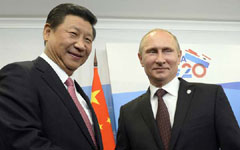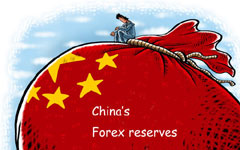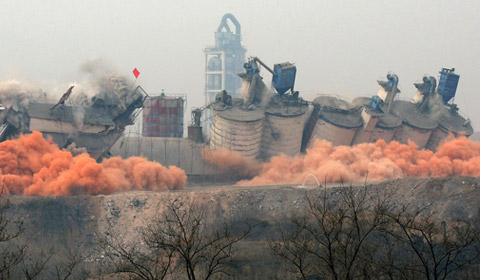Testing times for China's foreign exchange reserves
Updated: 2014-02-18 07:16
By Zhu Ning (China Daily)
|
||||||||
Yet, given their relatively high correlation with US T-bills in the grand scheme of things, such diversification within US assets may not offer China a big enough hedge against fluctuations in US economic growth, the budget dilemma or a possible default.
This situation is closely tied to the crux of the problem surrounding China's reserves: The country intends to diversify its reserves into other sovereign treasuries or assets, but it can find few alternatives.
|
 |
|
 |
Ignoring the economic situation of these regions for a moment, one would find the markets for such securities are small compared with those for US T-bills and agency securities.
Given the massive size of China's reserves, withdrawing from such a market would have profound effects and would inevitably damage the value of China's reserves.
One very important function of reserves is to serve as "ballast assets" that can be used to stabilize the value of a country's currency.
As a result, liquidity, immediacy and stability are crucial to reserve investments, and in this regard, US Treasury bills serve as a near-perfect choice.
However, many experts, including some Chinese central bank officials, believe that China's reserves are too large and a big chunk of them could be invested not for stability but for higher returns. If this is true, the real question becomes what the optimal size of China's reserves should be.
Although China has been trying hard to diversify into non-US-denominated assets over the past few years, the ballooning size of its reserves increases rather than decreases China's exposure to risk, and that seems to be the cause of Chinese anxiety over US fiscal problems.
If this is the problem, China should deepen its financial reforms, letting market forces determine its domestic interest rates and international exchange rate. Once China stops its passive "sterilization" of the inflows of dollars into its reserves, China's reserve investment challenges - along with many other challenges, such as domestic inflation and high housing prices - may be resolved once and for all.
The author is deputy director of the Shanghai Advanced Institute of Finance, Shanghai Jiaotong University.

 Hijacker held after diverting Ethiopian jet
Hijacker held after diverting Ethiopian jet
 Building collapse at Korean resort kills 10
Building collapse at Korean resort kills 10
 The big ballet stage
The big ballet stage
 17 more cement plants biting the dust
17 more cement plants biting the dust
 World's largest freshwater lake frozen
World's largest freshwater lake frozen
 American photographer wins World Press Photo 2013
American photographer wins World Press Photo 2013
 Zhou Yang retains women's 1500m title
Zhou Yang retains women's 1500m title
 Renzi set to become Italy's youngest PM
Renzi set to become Italy's youngest PM
Most Viewed
Editor's Picks

|

|

|

|

|

|
Today's Top News
Envoy begins four-day visit to DPRK
Hainan boosts tourism to Xisha
Policeman gets death sentence for shooting
Woman claims legislator is her child's father
Beijing calls on Tokyo to return plutonium to US
Xi calls on leaders to carry out new reforms
Trade inquiry creates friction
Bigger Chinese role in the Arctic
US Weekly

|

|




